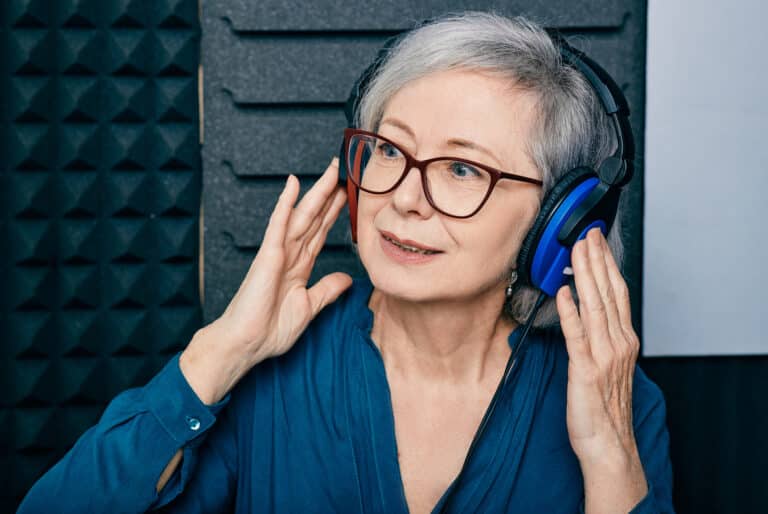Aging is a leading cause of hearing loss. The National Institutes of Health states that age-related hearing loss, also known as presbycusis, “develops and is exacerbated by various factors, including heredity, medical disease and environmental factors.”
While some of these factors are out of your control, if you are an older adult, there are steps you can take to help protect your hearing.
Protect Yourself From Loud Noise 
In addition to aging, exposure to loud noise is another leading cause of hearing loss. Any prolonged exposure to sounds over 85 dBA can damage the hair cells of your inner ear, leading to permanent hearing loss. Plenty of activities can reach levels above this, including going to music concerts or sporting events, hunting and shooting, riding motorcycles, using a leaf blower or even listening to music on headphones or earbuds.
If you engage in loud hobbies, wear hearing protection like earplugs or earmuffs. Also, make sure to keep the volume at a reasonable level when listening to music on your headphones and avoid turning it up over 50%.
Manage Health Conditions That Contribute to Hearing Loss
Your inner ear can be damaged by circulatory problems such as high blood pressure, heart disease and diabetes, which can lead to hearing loss. You can help protect your hearing by taking steps to prevent or manage these conditions by doing things like:
- Getting regular exercise by walking, gardening or taking a fitness class at West Gray Recreation Center
- Eating a healthy diet
- Taking any medications as prescribed
- Having regular checkups with your doctor
Be Careful When Cleaning Your Ears
Contrary to popular belief, you should not clean your ears with a cotton swab. Nor should you stick any other object in your ear to remove earwax. You can gently clean the outside of your ear with a washcloth and warm water, but your ears actually do a good job of regulating wax production and self-cleaning. Sticking anything into the ear can actually push earwax deeper into the ear canal, leading to clogged ears, muffled hearing, tinnitus and infection.
Don’t Put Off Getting a Hearing Test
If you find that you’re having trouble following conversations or that sounds seem muffled, reach out to your primary care provider or directly to an audiologist. They can examine your ears and perform a hearing test to see if any hearing loss has occurred. The earlier it’s diagnosed, the better equipped you’ll be to manage your condition with hearing aids or other assistive listening devices.
Protect your hearing health by calling Hearing Systems and scheduling an appointment with one of our experts today.

